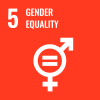West Coast, Yemen – Growing up in Yemen, Halima and her sister Hadija learned to weave from a young age. Their mother hoped to provide the two with a fun activity to pass time and help them adjust to life far from their home in Eritrea. As an introverted child with a vivid imagination, Halima quickly grew to love the craft.
Hadija cannot recall her sister Halima ever speaking. “She’s been deaf and unable to speak as far as I can remember,” she says. Over the years, their bond has grown stronger, partly due to the plight of their displacement and partly because of Hadija’s sense of responsibility to care for her younger sister.
Their communication has become intuitive, often relying on very few words, to the point where Hadija now believes that she can anticipate her sister’s thoughts. “She may not have a voice, but her mind is sharp,” Hadija explains. Halima’s hearing impairment has only motivated her to work harder, using her crafty hands to create baskets, hats, platters, and other items.

Each participant adds their unique touch to the weaving project, bridging their traditions from back home with their new lives in Yemen. Photo: IOM/Monica Chiriac
Already skilled at weaving, Halima refined her abilities during a training programme organized by the International Organization for Migration (IOM) through its Women and Disability Inclusion project. The selection process was conducted through focus group discussions and support from the community mobilizers, under the guidance of the camp coordination and camp management unit.
Displacement in Yemen not only results in the loss of homes and assets but also disrupts women’s engagement in economic activities and access to traditional livelihoods. Recognizing this challenge, IOM trained 25 women from the host community and internally displaced population to lead various vocational classes.
Today, Halima has taken on the role of a trainer, sharing her craft with other women, including aspiring trainers. To date, she has led several training sessions, successfully mentoring over 50 women in the art of weaving.
At the beginning of her classes, she typically gathers her trainees to demonstrate techniques but also provides individual guidance to ensure they grasp each step. Halima is impressed by how quickly the women have learned to weave. “Patience is key,” she emphasizes.




Laughter and learning intertwine as participants weave together during the training sessions. Photo: IOM/Monica Chiriac
Ten years ago, when Halima’s husband passed away, she had to learn to navigate life without him, but her sister never left her side. The two still share meals and weave together, inseparable after all these years. Halima’s woven products have significantly increased her income, allowing her to support herself. The incentive received as a trainer has further bolstered her independence. Without it, she would have to rely solely on her sister.
While life is far from ideal, Halima feels she has found a new sense of belonging in Yemen. Renowned as one of the top weavers in the site, she is sought out weeks in advance for celebrations and trusted to prepare essential items for weddings. She takes pride in bringing joy to others and participating in their happy occasions. “I feel needed here,” Halima explains.


In addition to weaving, the women craft intricate bead creations, adding colour and charm to their community. Photo: IOM/Monica Chiriac
Similarly to Halima, Zainab has also struggled with her disability for the better part of her life amidst being displaced. Shortly after getting married, the 30-year-old started experiencing debilitating joint pain that eventually left her bedridden. After several doctor visits, she was diagnosed with severe rheumatism. Despite numerous treatment attempts, Zainab found herself increasingly reliant on a wheelchair, which impacted both her independence and mental well-being.
Zainab fled from Al Hodeidah in Yemen along with her brothers, parents, and husband due to the ongoing conflict that displaced an estimated 4.5 million people, many of whom have experienced multiple displacements over the years. Soon after settling in the Abuzaher displacement site on Yemen’s west coast, her husband of 12 years divorced her.

Through vocational classes provided by IOM, Zainab is a source of inspiration for other women, leading henna art workshops for other women. Photo: IOM/Monica Chiriac
“He told me that he couldn’t cope with my disability anymore,” she says. Amidst life’s daily challenges, moments of profound loneliness weigh heavily on Zainab. “The true disability lies within my heart,” she says.
Since childhood, Zainab has found joy in crafting small items to brighten her days. To no surprise, she was thrilled to discover the vocational classes offered by IOM in henna art, weaving, sewing, and perfume-making. Over time, Zainab excelled in these skills and now leads the henna art classes. “I love being a trainer because I can actively participate in improving the lives of other women,” she explains.
Without children of her own, continuing to pursue her passion is essential for Zainab. Currently, she is receiving treatment for her condition, which has shown signs of improvement. Zainab is grateful for the increased mobility in her hands, which enables her to continue practicing henna art. While she dreams of easier days ahead, she remains focused on her aspirations. “I hope to become a teacher one day,” she shares.

In the intricate lines of henna art, Zainab finds beauty, healing, and the power to inspire others. Photo: IOM/Monica Chiriac
The Women Empowerment Projects are funded by EU Humanitarian Aid, USAID’s Bureau for Humanitarian Assistance (BHA), and UN’s Central Emergency Response Fund (CERF) in the framework of IOM’s camp coordination and camp management activities (CCCM) in Yemen.
This story was written by Monica Chiriac, Media and Communications Officer with IOM Yemen.


